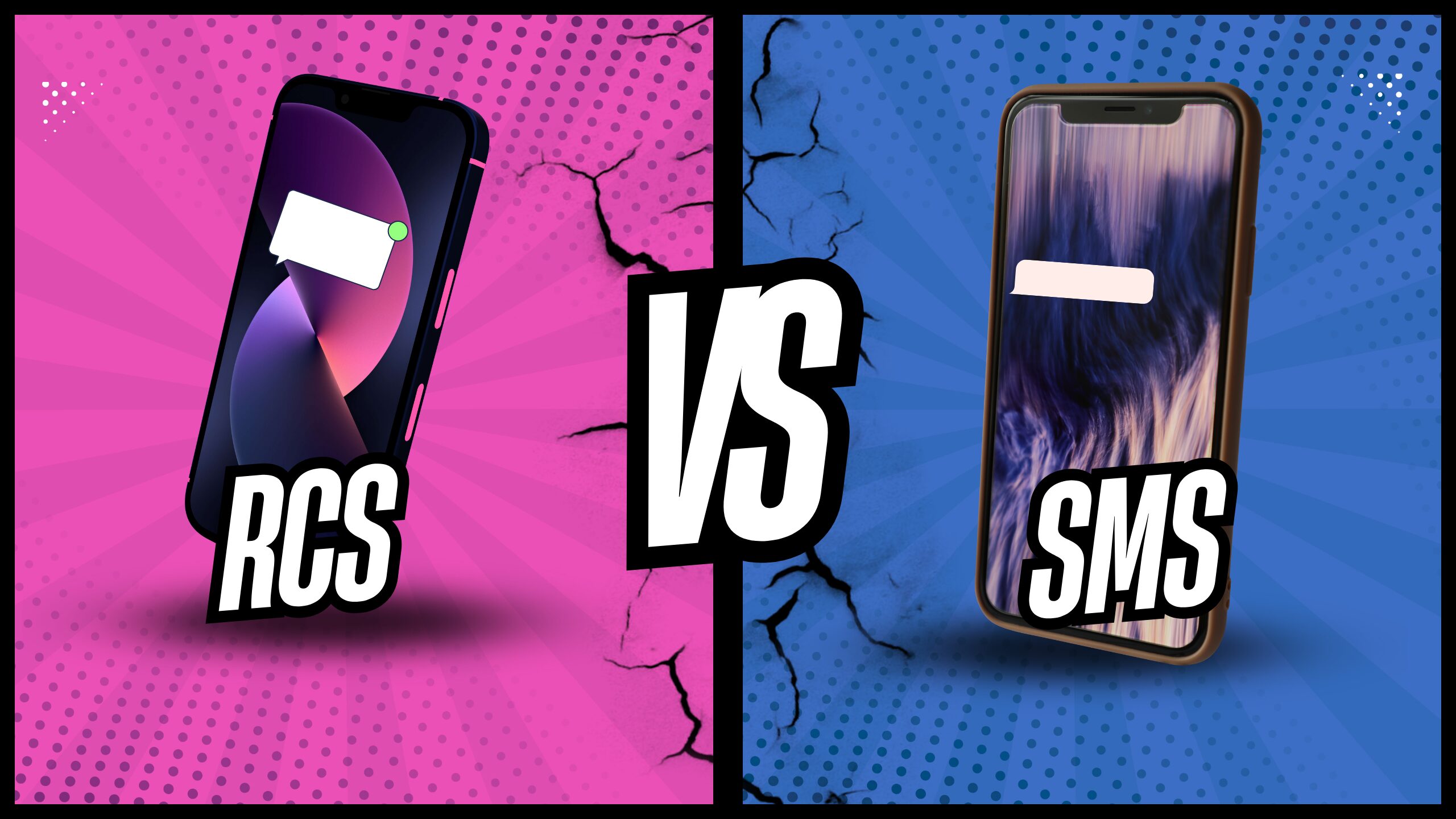A restaurant owner in Cairo launches a loyalty campaign. Half of her customers receive simple text messages about discounts. The other half gets rich, app-like messages with clickable buttons and images. The result? Both groups respond — but in very different ways. This simple story highlights the debate of RCS vs SMS and why the choice of the Best SMS Service Provider can define how Egyptian businesses connect with customers in 2026.
What Exactly Is SMS?
SMS (Short Message Service) is the original text messaging technology. Introduced in the early 1990s, SMS allows sending up to 160 characters of plain text. It doesn’t require an internet connection and works on every mobile phone, from the most basic feature phone to the latest iPhone.
Key strengths of SMS:
- Universal: Reaches anyone with a mobile number.
- No internet required: Perfect for areas with limited connectivity.
- Reliable delivery: Works across all networks in Egypt.
- Use cases: Payment confirmations, delivery updates, OTPs, urgent alerts.
This universal accessibility is why even today, the Best SMS Service Provider remains essential for businesses.
What Is RCS Messaging?
RCS (Rich Communication Services) is often described as “SMS on steroids.” It uses internet connectivity and is supported on smartphones with RCS-enabled apps (often built into Android Messages).
Features of RCS include:
- Rich media: images, videos, GIFs.
- Interactive elements: buttons for Pay Now, Book Ticket, or Track Order.
- Branding: logos, colors, and verified sender IDs.
- Analytics: delivery reports, read receipts, and typing indicators.
For businesses, RCS offers possibilities similar to WhatsApp Business but without needing third-party apps. The catch? Customers need smartphones, internet access, and RCS-enabled devices.
RCS vs SMS: Key Differences
| Feature | SMS | RCS |
| Availability | Works on any phone | Smartphones with RCS support only |
| Internet needed | No | Yes |
| Message type | Text only (160 characters) | Rich media, buttons, branding |
| Delivery reports | Sent/delivered | Read receipts, typing indicators |
| Branding | None | Business logos and verified sender IDs |
| Use cases | Alerts, OTPs, confirmations | Promotions, interactive engagement |
For Egyptian businesses, the question isn’t whether one replaces the other, but how to combine them effectively.
Why SMS Still Dominates in Egypt
Despite the excitement around RCS, SMS continues to be the backbone of business communication in Egypt.
- Device Penetration: While smartphone adoption is rising, a significant portion of Egypt’s population still relies on basic phones. SMS ensures no one is left out.
- Internet Accessibility: Not all regions have reliable mobile internet. SMS bypasses this limitation completely.
- Trust Factor: When customers receive an SMS confirming a payment or delivery, it feels official and reliable. SMS has decades of credibility.
- Regulatory Compliance: Bulk SMS services are well-established under Egyptian telecom regulations, making them easier for businesses to adopt.
This is why the Best SMS Service Provider is still the first choice for businesses seeking reliability.
When RCS Shines in Egypt
RCS, however, brings unique advantages in industries that thrive on richer customer engagement.
- Retail & E-commerce: Send clickable catalogs directly into customers’ inboxes.
- Travel & Hospitality: Share boarding passes or booking confirmations with QR codes.
- Banks & Fintech: Deliver interactive fraud alerts and branded messages.
- Education: Push multimedia reminders with links to online resources.
For businesses targeting Egypt’s growing middle-class smartphone users, RCS provides a premium engagement layer.
How the Best SMS Service Provider Bridges Both Worlds
The smartest providers are not forcing businesses to pick between SMS and RCS. Instead, they offer hybrid delivery systems:
- If a customer has RCS-enabled internet access, they receive a rich interactive message.
- If not, they automatically receive a fallback SMS.
This guarantees universal reach while offering richer experiences where possible. For Egyptian businesses, this hybrid approach ensures campaigns are both inclusive and modern.
Real-World Examples
- Retail in Cairo: A fashion chain used SMS to confirm orders but switched to RCS for promotions. Customers with smartphones received product carousels inside their message apps, while others still got text-based promotions. The campaign saw a 25% higher engagement rate.
- Logistics in Alexandria: A courier company integrated bulk SMS services for prepaid order confirmations. As smartphone adoption grew, they layered in RCS “Track Delivery” buttons, cutting support calls by 40%.
- Education in Giza: Universities relied on SMS for tuition payment confirmations. Now, with RCS, they share clickable payment links and schedules directly in the message thread.
These examples prove that the Best SMS Service Provider is one that offers flexibility, adapting to both SMS and RCS environments.
Benefits of SMS and RCS Integration
- Universal reach: No customer is excluded.
- Stronger engagement: Rich media for those who can access it.
- Fraud prevention: OTPs and alerts remain SMS-first for reliability.
- Marketing effectiveness: RCS boosts click-through rates with interactive buttons.
- Customer satisfaction: Faster updates, more trust, less confusion.
Challenges to Consider
- Device Fragmentation: Not all Egyptian smartphones support RCS yet.
- Internet Dependency: RCS fails where mobile data is weak.
- Cost: RCS campaigns can be more expensive than bulk SMS.
- Message Fatigue: Customers may tune out if bombarded with too many alerts.
Best Practices for Egyptian Businesses
- Partner with the Best SMS Service Provider offering both SMS and RCS.
- Use SMS for critical updates (payments, OTPs, urgent alerts).
- Use RCS for interactive promotions and engagement.
- Keep SMS concise — under 160 characters, always including the brand name.
- Use AI tools for timing messages when customers are most active.
- Monitor delivery reports to measure success.
Future of RCS and SMS in Egypt
Looking toward 2026, Egypt’s digital economy will accelerate the adoption of RCS. But SMS won’t disappear — it will remain the backbone for universal reach.
Expect to see:
- Hybrid models are becoming the norm.
- AI-powered smart routing chooses SMS or RCS depending on customer context.
- Cross-border RCS campaigns for remittances and tourism.
- More verified business accounts to build trust in messaging.
Ultimately, the Best SMS Service Provider in Egypt will be one that gives businesses flexibility, ensuring no customer is left behind.
Conclusion
For Egyptian businesses in 2026, the question isn’t RCS vs SMS — it’s how to combine them. SMS provides universal trust and reach, while RCS delivers rich, interactive experiences for smartphone users. Businesses that partner with the Best SMS Service Provider can balance both, ensuring instant payment confirmations, fraud protection, and engaging customer campaigns.
When every message carries trust, speed, and relevance, businesses win loyalty — one buzz at a time.



